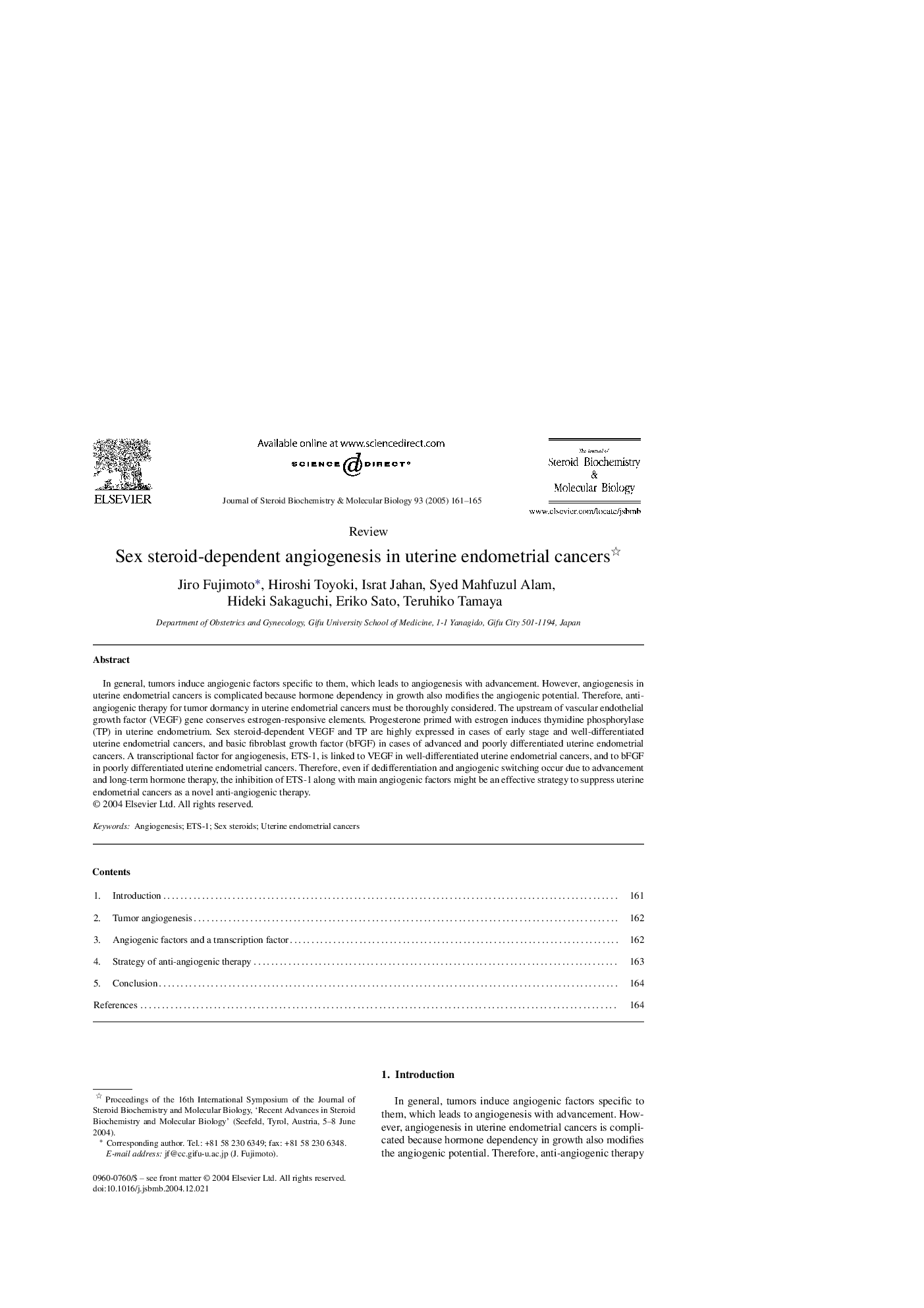| Article ID | Journal | Published Year | Pages | File Type |
|---|---|---|---|---|
| 9892215 | The Journal of Steroid Biochemistry and Molecular Biology | 2005 | 5 Pages |
Abstract
In general, tumors induce angiogenic factors specific to them, which leads to angiogenesis with advancement. However, angiogenesis in uterine endometrial cancers is complicated because hormone dependency in growth also modifies the angiogenic potential. Therefore, anti-angiogenic therapy for tumor dormancy in uterine endometrial cancers must be thoroughly considered. The upstream of vascular endothelial growth factor (VEGF) gene conserves estrogen-responsive elements. Progesterone primed with estrogen induces thymidine phosphorylase (TP) in uterine endometrium. Sex steroid-dependent VEGF and TP are highly expressed in cases of early stage and well-differentiated uterine endometrial cancers, and basic fibroblast growth factor (bFGF) in cases of advanced and poorly differentiated uterine endometrial cancers. A transcriptional factor for angiogenesis, ETS-1, is linked to VEGF in well-differentiated uterine endometrial cancers, and to bFGF in poorly differentiated uterine endometrial cancers. Therefore, even if dedifferentiation and angiogenic switching occur due to advancement and long-term hormone therapy, the inhibition of ETS-1 along with main angiogenic factors might be an effective strategy to suppress uterine endometrial cancers as a novel anti-angiogenic therapy.
Keywords
Related Topics
Life Sciences
Biochemistry, Genetics and Molecular Biology
Biochemistry
Authors
Jiro Fujimoto, Hiroshi Toyoki, Israt Jahan, Syed Mahfuzul Alam, Hideki Sakaguchi, Eriko Sato, Teruhiko Tamaya,
